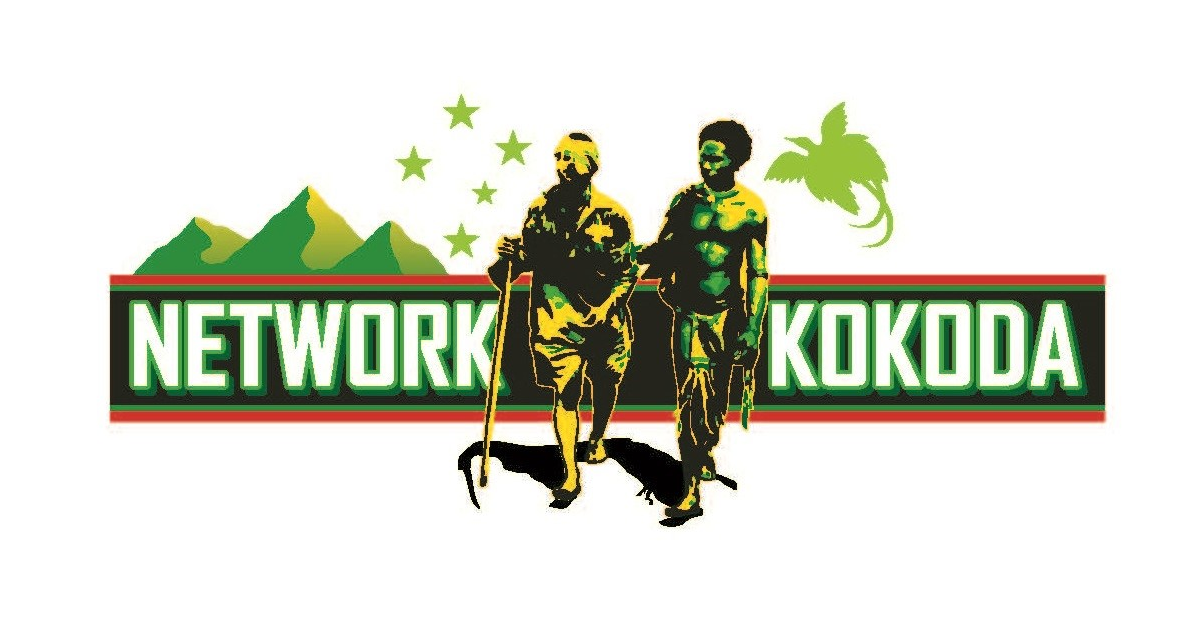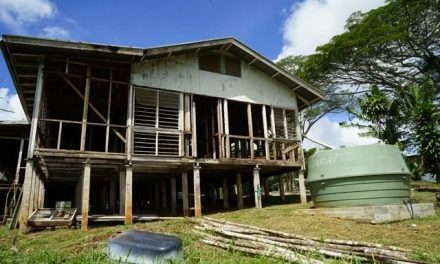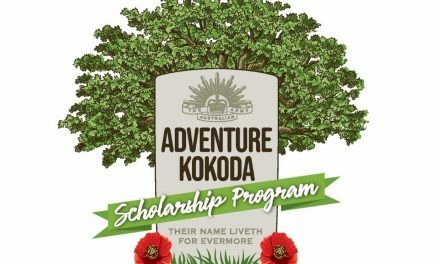Network Kokoda – a Not-for-Profit charity established to honour our wartime heritage in Papua New Guinea – held its inaugural Anzac ‘For Valour’ luncheon in Parliament House Sydney on 5 April 2019. Keynote speaker was former Major-General, Senator Jim Molan AO DSC. The following presentation by founding Chairman and current Director of Network Kokoda, The Hon Charlie Lynn OAM OL (PNG), outlines the reasons for the establishment of the organization’.
‘Mr Chairman, trekkers and guests,
‘I’ve have been involved with Papua New Guinea for the past 28 years and I believe I’m just starting to learn about the place. If you listen to the negatives about the place you probably wouldn’t ever want to go there – but after you’ve been a couple of times it’s hard to stay away.
‘Papua New Guinea forms part of Melanesia – the island chain to our immediate north.
‘Melanesia is a Greek term for ‘Black Islands’. It comprises West Papua with 4 million people; Papua New Guinea with 8½ million; the Solomon Islands with ¾ of a million and Fiji with 1 million – a total of 14 million who live on almost 1000 islands speaking 1000 of the World’s 6000 languages and as close as 5 kilometres from our shoreline.
‘It’s a land immensely rich in natural resources but at the bottom of almost every international index in regard to human wellbeing.
‘According to one writer it’s a place where paradox prevails:
‘Where arse grass and penis gourds mix with Hugo Boss suits and rolex watches. Where some men mine the hearts of volcanos looking for gold while others worship the spirits of ancestral crocodiles.
‘It’s a place where ferociously decorated warriors battle over women, land and pigs with bows and arrows and homemade shotguns. Where Asian loggers plunder ancient forests alongside Christian missionaries harvesting souls.
‘And where Australian Government bureaucrats try to impose their antipodean canons on cultures where blood and bribery are much thicker than holy water.’
‘It’s all that and more – It’s a land of a thousand cultures – a Parliament of a thousand tribes – a land of the unexpected.
‘In a world that has been shrunk to the size of a computer screen, Papua New Guinea is the last adventure.
‘It’s also our closest neighbour; our former territory; our wartime ally; and a fellow Commonwealth member.
‘Incredibly it’s a land we know little about – Melanesian studies do not rate in our education systems.
‘Between the time Papua came under Australian administration in 1902 through to independence in 1975 Australia, Papua, and New Guinea forged a close relationship under the stewardship of visionary leaders such as Sir Hubert Murray, Sir John Guise, Sir Paul Hasluck, Sir Michael Somare and many others.
‘During this period young Australian patrol officers, known as ‘kiap’s, married their Papuan girlfriends, raised families and became PNG citizens at independence. Young PNG scholars came to Australia to study, played rugby league, married their Australian girlfriends and returned to PNG to raise families. During this period young leaders from both countries emerged with an empathetic understanding of each other.
‘A global anti-colonial sentiment in the early 70s brought this era to a close soon after independence as we stopped walking in each other’s shoes.
‘Since then, responsibility for our relationship was delegated to government officials on 2-3 year posting cycles where their experiences are often limited to the secure surrounds of protected compounds.
‘Papua New Guinea now has its own tertiary educational institutions which have limited the flow of students to Australia.
‘These factors have led to a widening empathetic divide between our two countries over the past four decades as we yielded to international pressures to take a hands-off approach and provide aid on an unconditional basis. The results were devastating for the young country where ‘blood and bribery’ has proved to be ‘thicker than holy water’.
‘The recent extension of China’s sphere of influence into the South-West Pacific has shades of Japan’s plans for a co-prosperity sphere in 1942 – the strategy is similar but their ammunition is different – they use dollars instead of bullets.
‘The old adage that countries don’t have permanent friends only permanent interests seems to be a truism with Japan and Australia now seeking to counter China’s influence in the region.
‘Australia’s post-independence decision to delegate Ministerial responsibility for our relationship with PNG to the AusAID bureaucracy was patronising and led some influential PNG leaders to ‘look North’ for new friends.
‘Those chooks have now come home to roost for Australia as we seek to counter Chinese influence in the region.
The challenges are complex and daunting and the outcomes will have a significant impact on following generations in Australia and Papua New Guinea.
‘Fortunately for us, one of the natural advantages we have over China is the fact that a lot of our friends in PNG still like us as the result of relationships established during the colonial era and because of our shared wartime history. It is also fair to say that the increasing number of young Australians who visit PNG to trek across the Kokoda Trail like them as well.
‘However, we need to be aware that wartime sites significant to our shared wartime heritage can be expected to face threats from future mining and forestry operations. We were very lucky to save Kokoda a bit over a decade ago when the discovery of a $3 billion gold and copper deposit saw bulldozers arrive near the southern slopes of the trail.
‘So, the question is how do we protect sites that are significant to our shared wartime heritage in a country with a system of customary land ownership; a subsistence economy; and high levels of corruption within government processes?
‘I don’t have an academic answer to this question but my experiences in PNG over the past 28 years, where I spend almost all of my time living with PNG villagers at Sogeri and along the trail, have led me to believe that the needs of remote subsistence village communities are not complicated.
‘They want to ensure they have access to a variety of crops in local gardens that will sustain them. They would like to have access to a trained nurse with an adequate supply of medicine; and they want their children to be educated.
‘In a country where the average wage is $30 a week and even less for what they call the ‘informal economy’ it is difficult for most of them to understand the value of numbers relating to thousands, millions, billions or trillions.
‘But they do know what they want to eat; what an antibiotic tablet will do; what an education for their kids might achieve; and how a few kina will help.
‘It follows then that if we identify sites that are significant to our shared wartime heritage along the Kokoda Trail and help develop interpretive memorials that will generate an entrance fee along with other opportunities for them to earn some extra kina they will protect the sites and the people who come to visit them.
‘Our strategy for Network Kokoda is therefore based on earning their trust and respect by supporting their local community needs and lobbying government to develop heritage plans for the sites they own.
‘We want to work with them to help improve their gardens and provide for their basic health needs. But more importantly we want to ensure that their children have every opportunity to learn at elementary, primary, secondary and tertiary education institutions.
‘Since we started with the help of some generous benefactors, we have engaged a young agricultural graduate as our Field Manager to assist local villages. We have built Community Education Centres at Sogeri and Abuari; a commercial fish farm at Iaorwari High School; a TB Isolation Ward at Popondetta High School. We provide scholarships, school supplies and urgent medical support to local villagers on an ongoing basis.
‘When we are presented with a village child who requires urgent medical evacuation and treatment along the trail during our treks it is just not possible to pat them on the head and express a hope that they will get better.
Well, we can’t anyway!
We then have to arrange for the family to accompany us to the airport. We invariably have to throw a couple of our guides off the charter and give them an allowance to walk back to their villages. We then have to arrange for the necessary operation at the Port Moresby International Hospital – arrange for their rehabilitation and eventual return to their village. It’s time consuming and expensive but I’m pleased to say that so far, we have met every demand placed on us over the years. And the smiles and acknowledgements we receive when we return to the village makes it all worthwhile.
‘The TB Isolation Ward we helped build in partnership with the Oro Community Development Project run by John Kleinig who is with us today will give hope to the hopeless and will save lives.
‘Our fish farm at Iaowari High school which we have built in partnership with Richmond Rotary who are also with us today will improve the nutrition of up to 800 boarding students and provide a much needed source of income for the school.
‘Our community centre at Sogeri is having trouble meeting the demand for local women’s groups on the Sogeri Plateau – we run classes to meet their requests in literacy, financial literacy, cooking, sewing and agriculture.
‘During this process over the past three decades I have learned that if you want to work in Papua New Guinea you must have a high degree of tolerance – an extraordinary amount of patience – and a great sense of humour. If you have these qualities, you will find yourself working with the most caring, compassionate and uninhibited people you will ever meet. And after a while you will begin to feel you are returning home when you touchdown in Port Moresby – that’s when the land of the unexpected has gotcha!
‘Friends, we would not be able to do anything near as much as this without the support of our Network Kokoda Board under Andrew Tracey’s Chairmanship of our Board; the generous support of JBWere; the support of past trekkers who have shared the pilgrimage with us; and our corporate and political friends who come along to our functions to honour the legacy of our Kokoda veterans by providing hope to subsistence villagers who are the custodians of land sacred to our shared wartime heritage.’
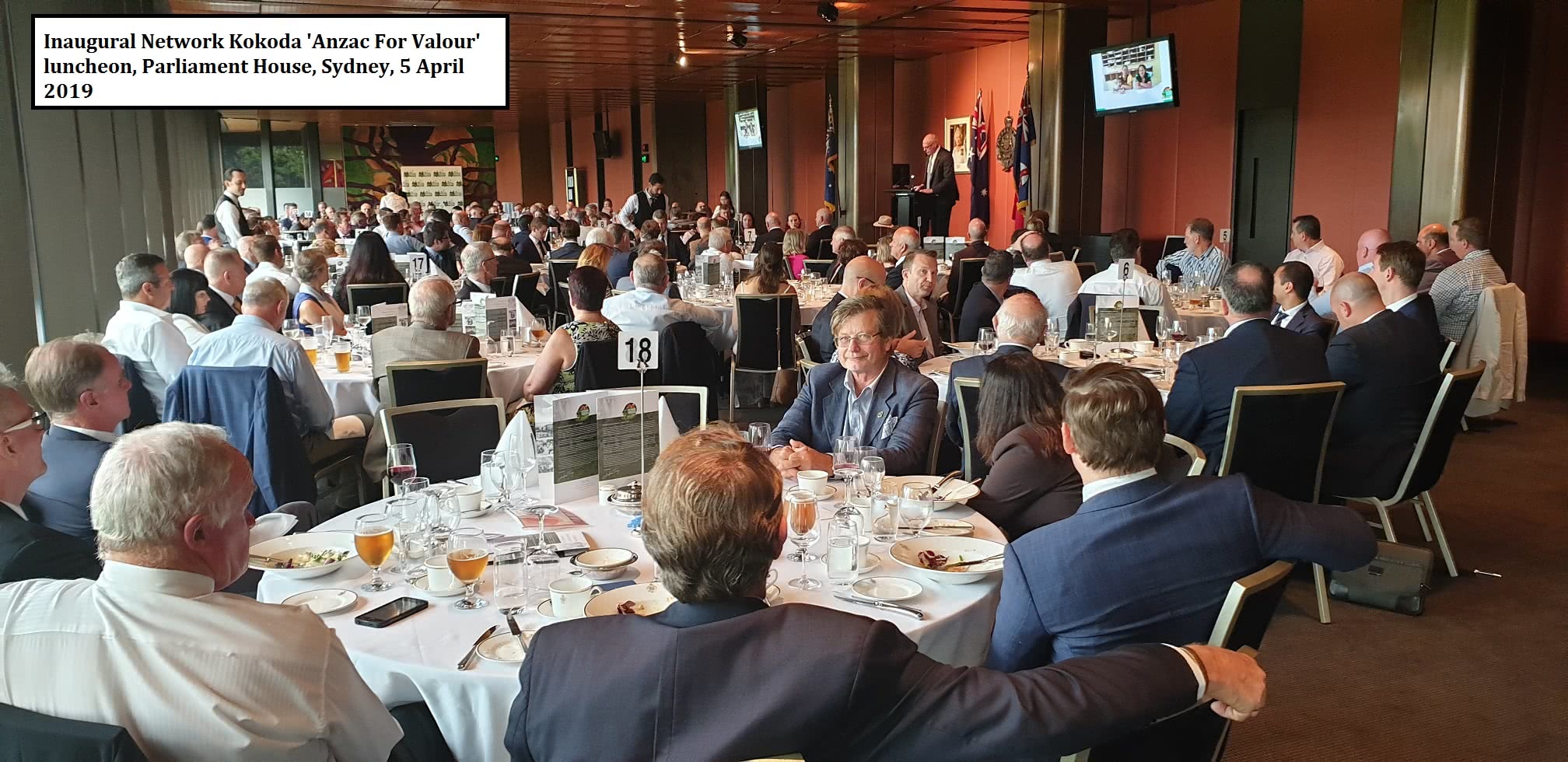
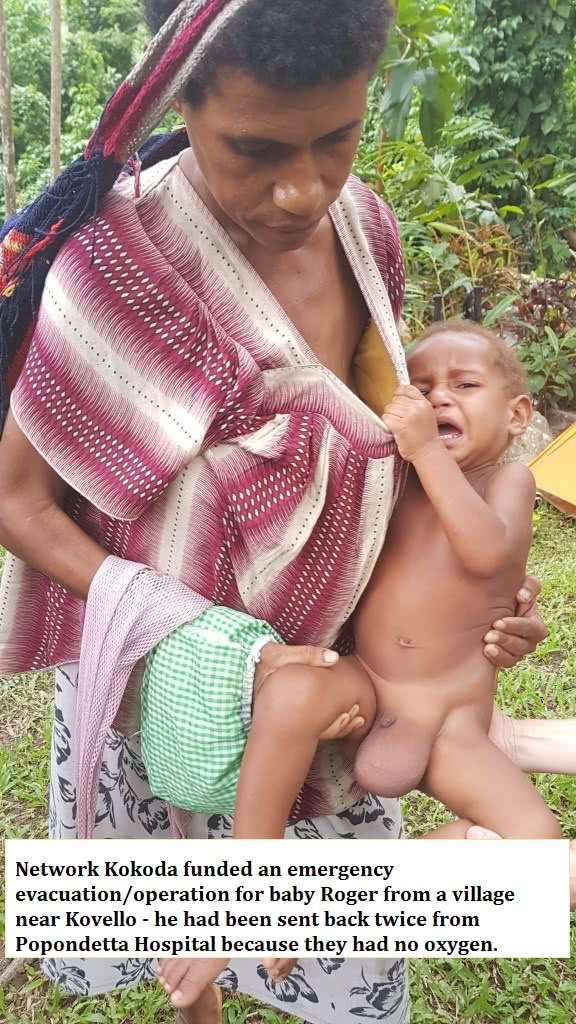
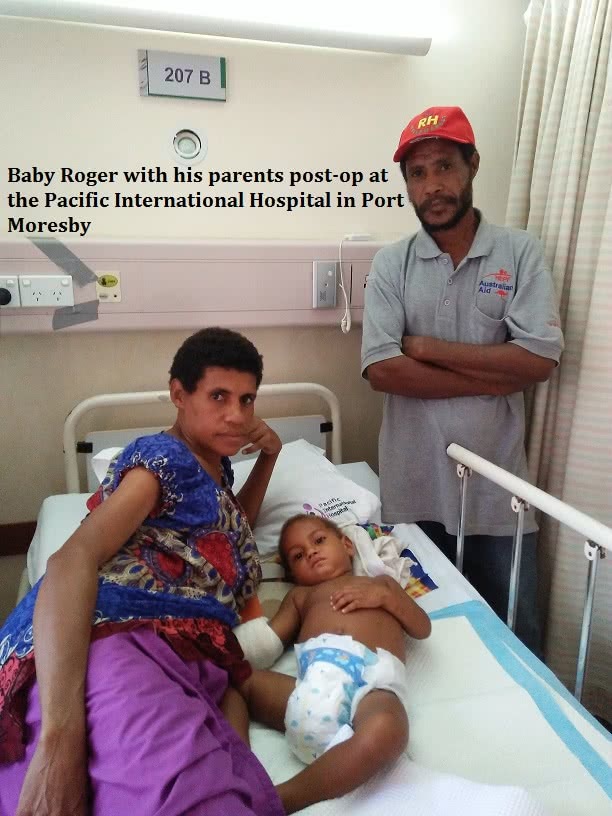
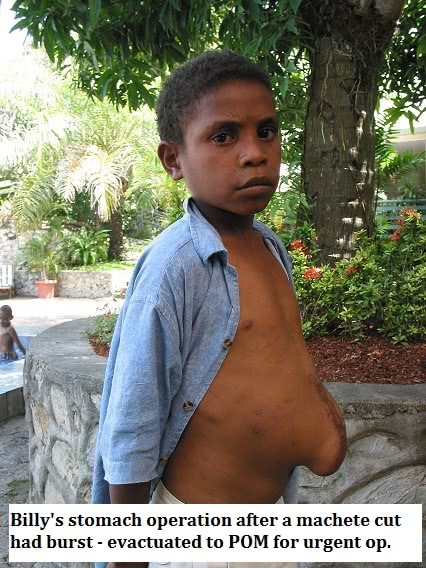
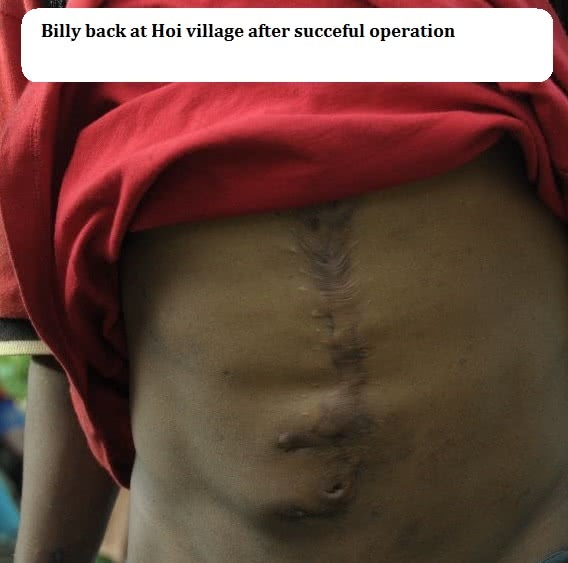
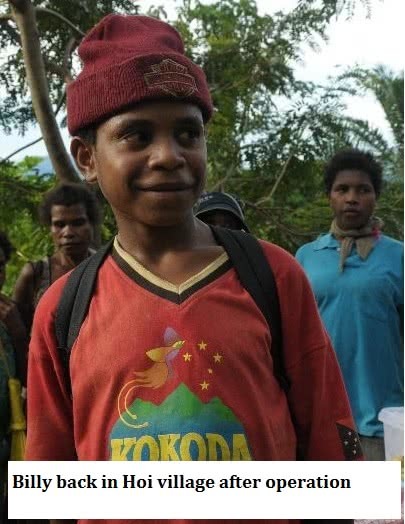
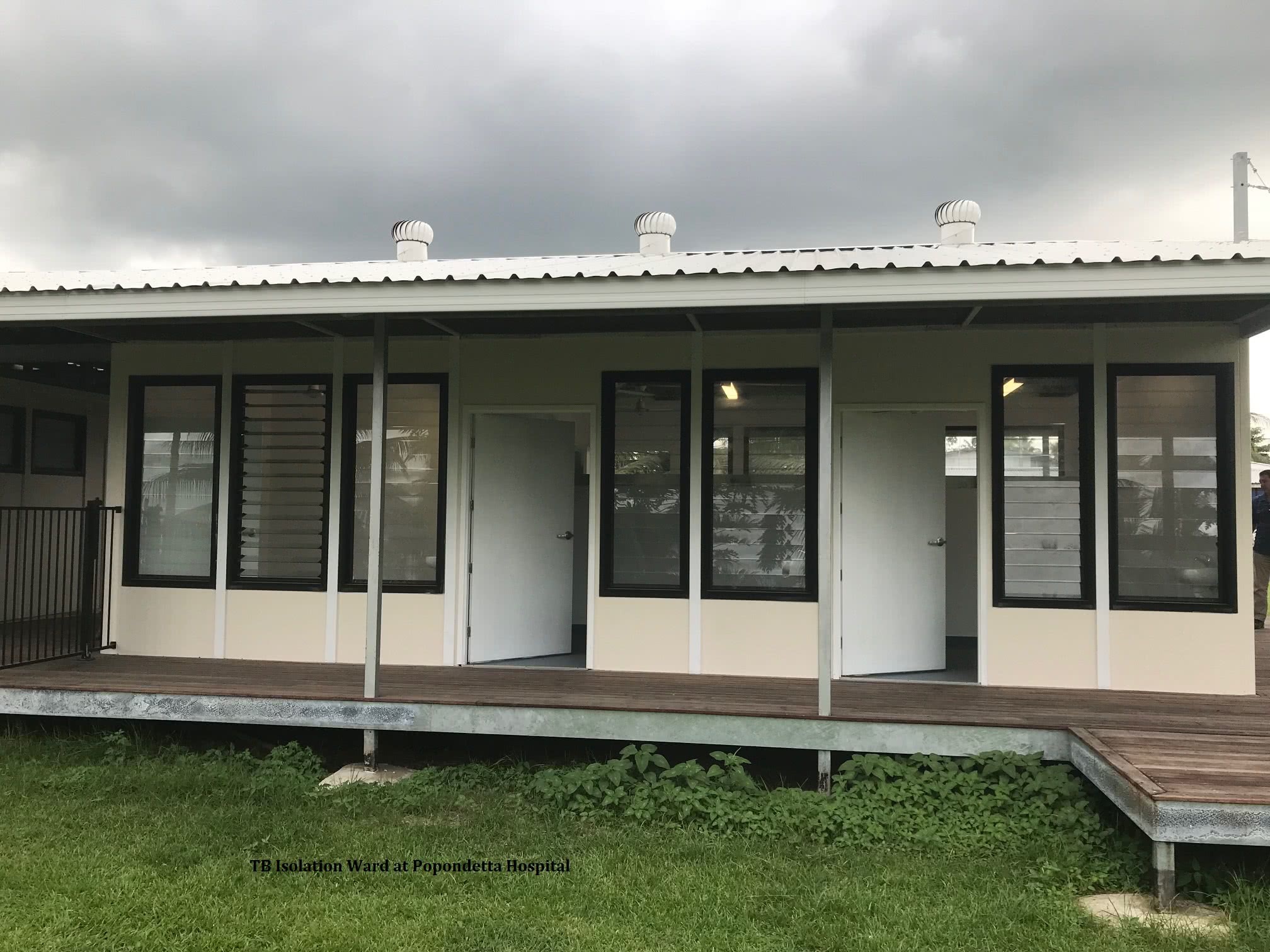
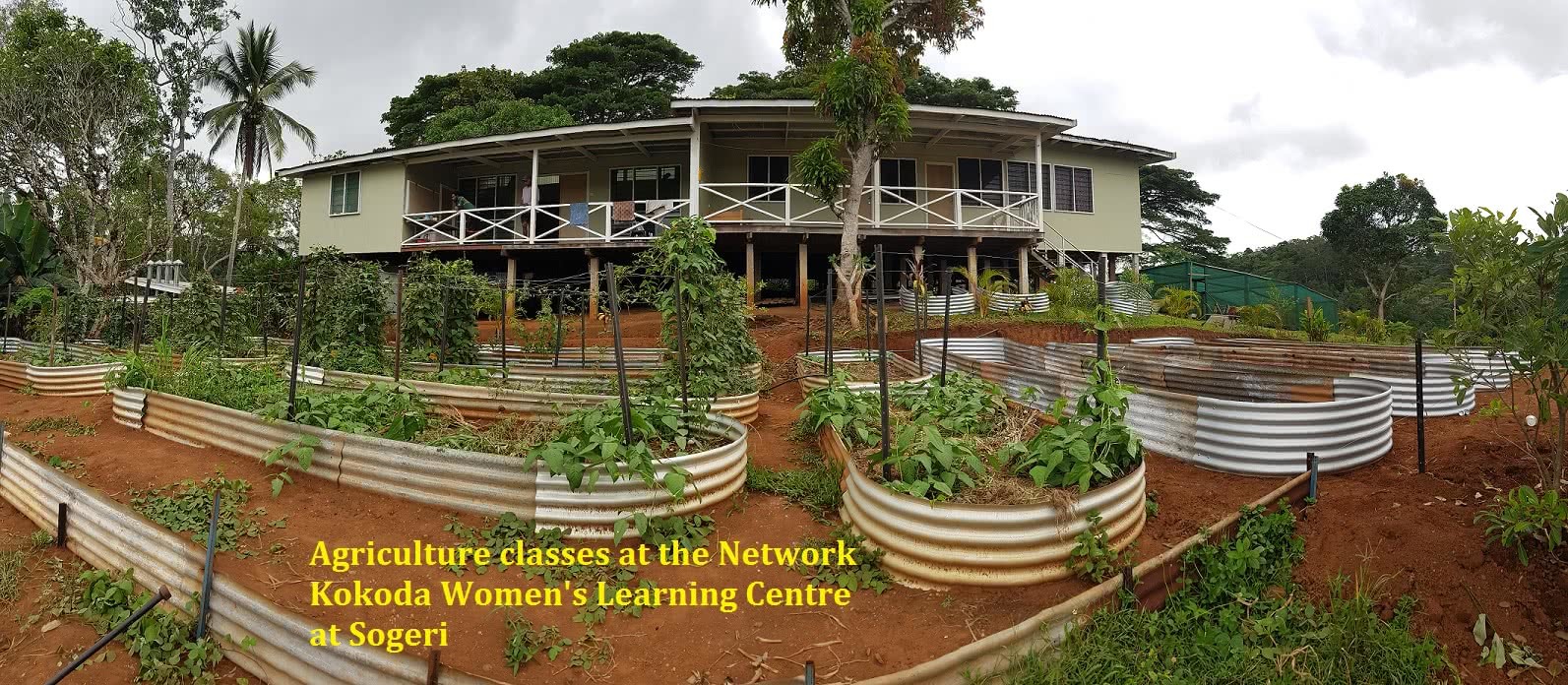
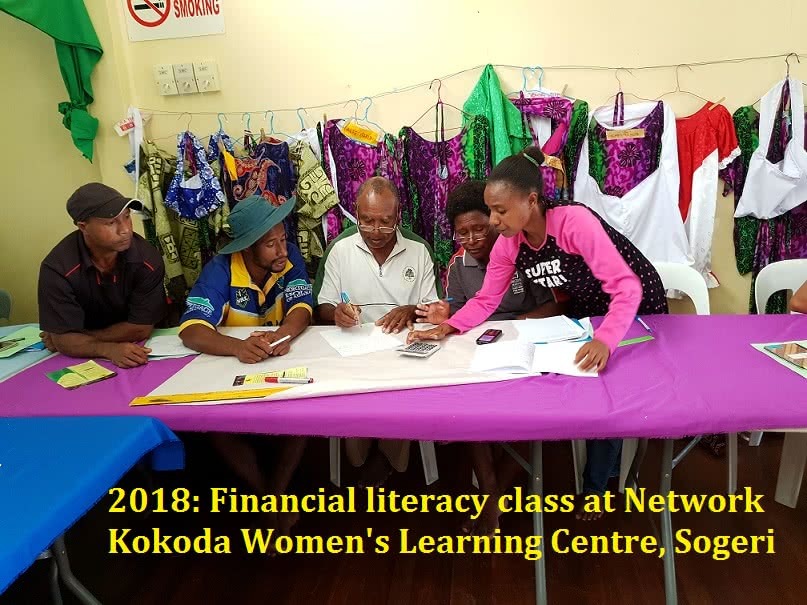
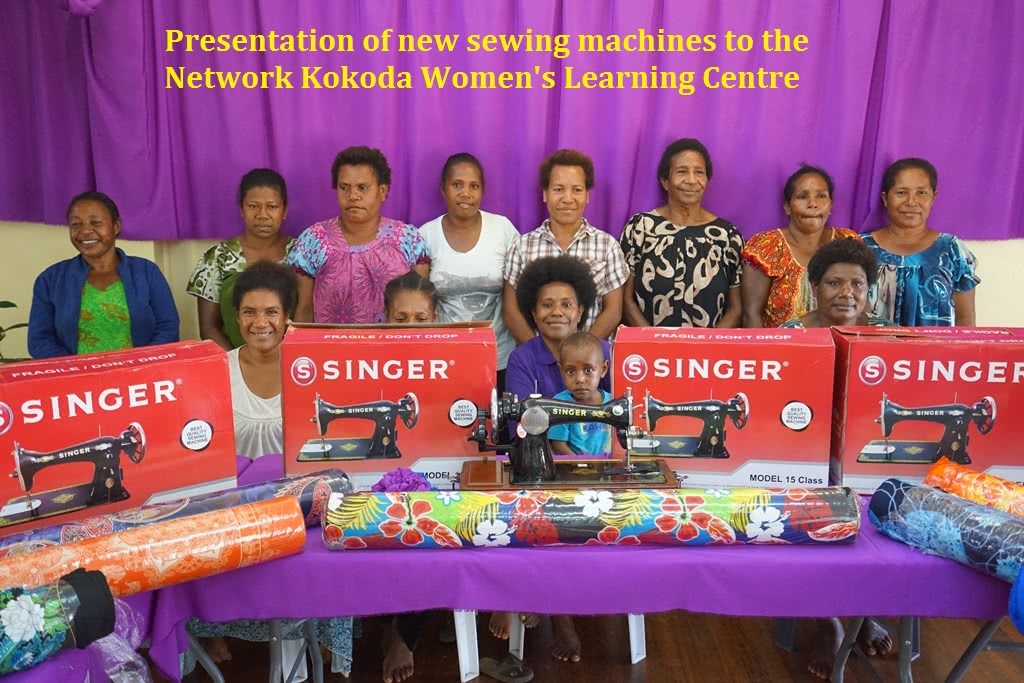
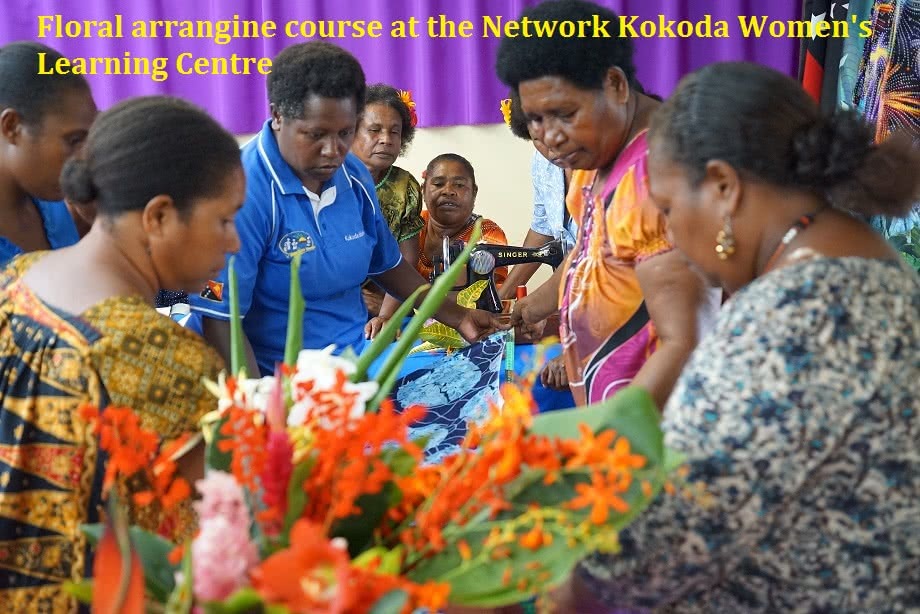
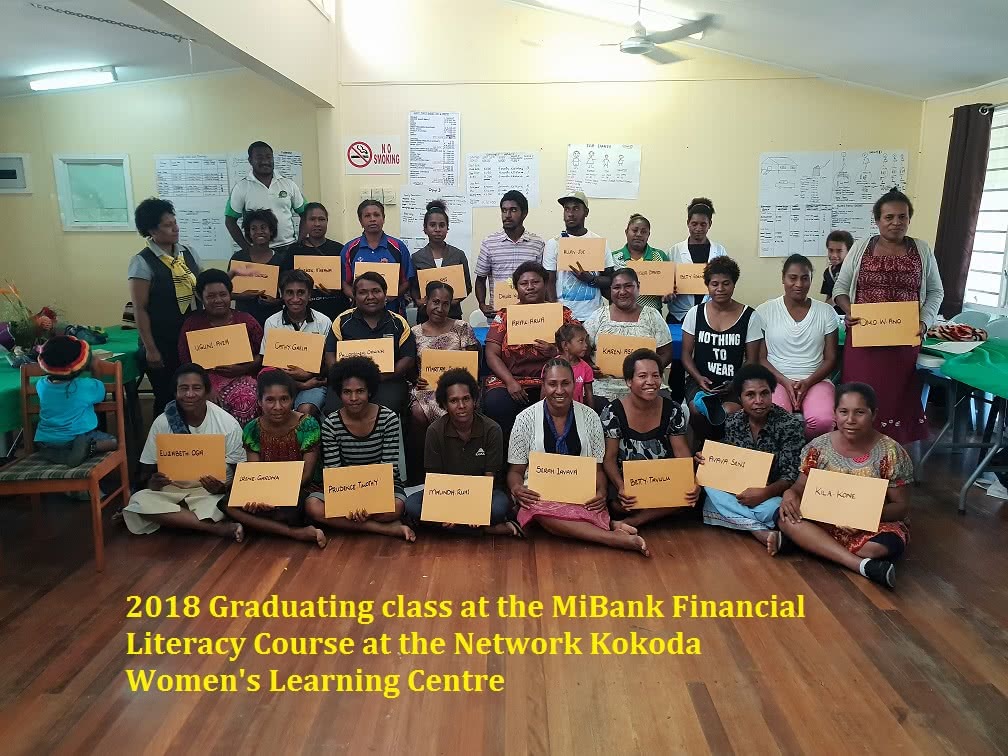
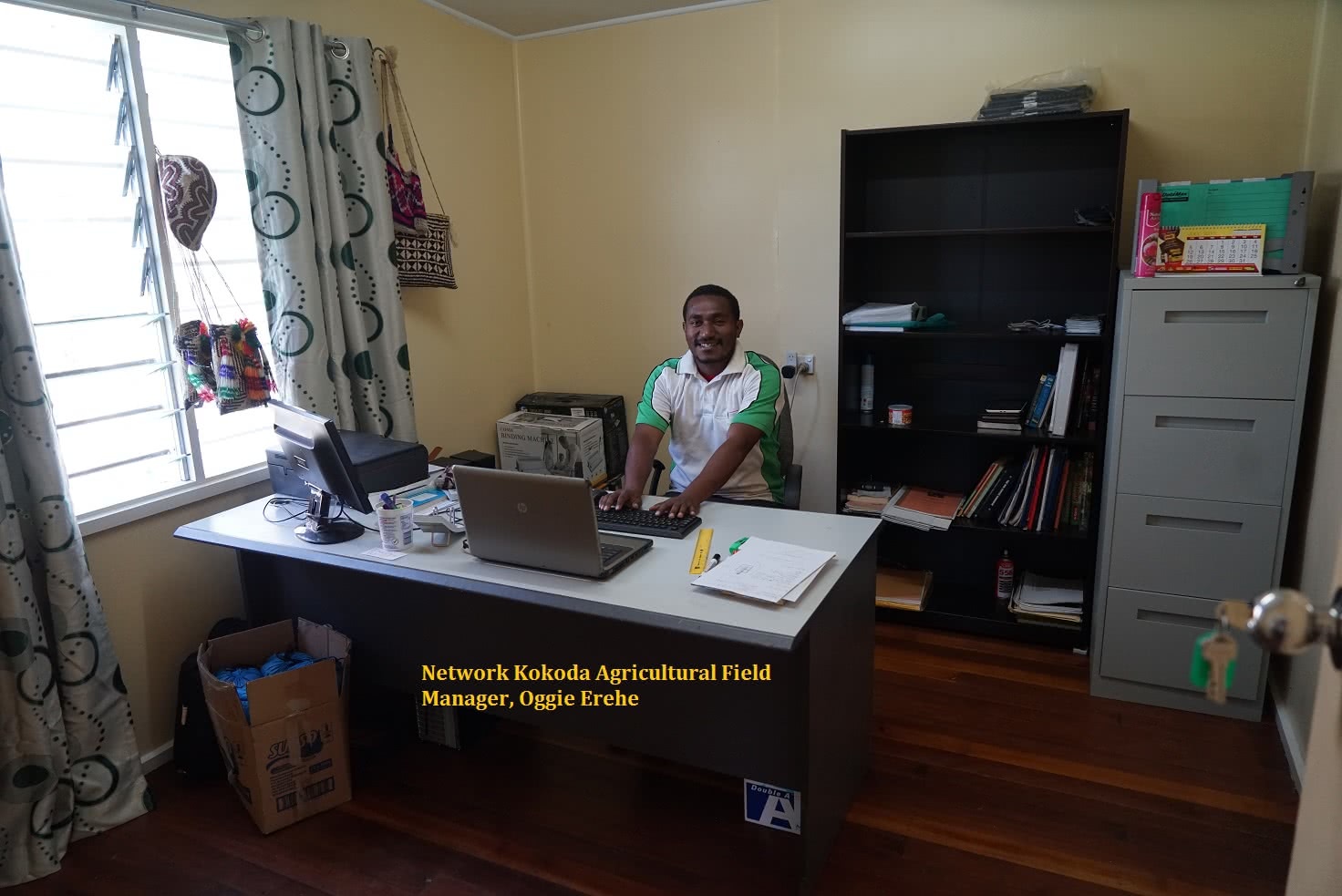

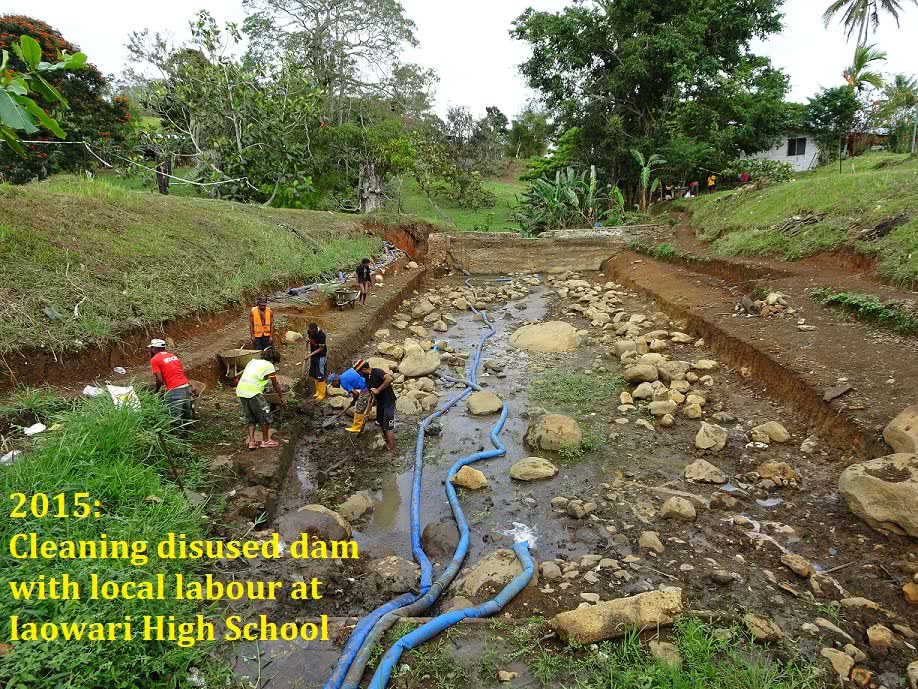


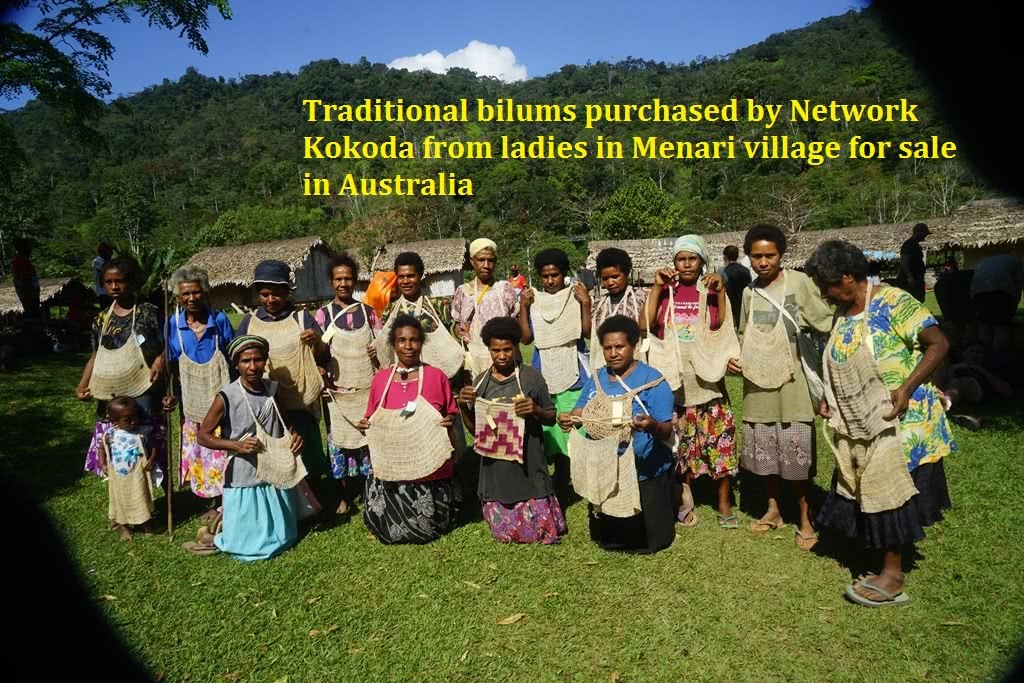

Tenk yu tru you for coming today and I look forward to keeping in touch.

